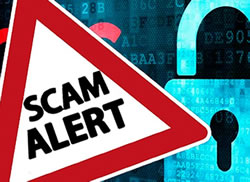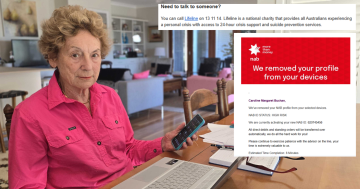 Executive Director for Consumer Protection, Trish Blake has urged online members of the community to be suspicious of any email asking for a payment of money or advising of a change in bank account details to where payments are to be sent.
Executive Director for Consumer Protection, Trish Blake has urged online members of the community to be suspicious of any email asking for a payment of money or advising of a change in bank account details to where payments are to be sent.
Ms Blake’s advice follows the case of a Western Australian woman who lost about $732,000 after scammers intercepted email communications between her and her settlement agent in relation to the purchase of a Beaconsfield property.
The scammers then sent the buyer a fake email pretending to be the settlement agent, substituting the bank account details to one they controlled.
Ms Blake said these scams usually involved hacking into someone’s email account or computer system, but it could be difficult to determine exactly where the hack had occurred.
“The hackers may have successfully guessed the password or installed spyware or malware on computers or laptops after recipients opened attachments or clicked on links in scam emails,” Ms Blake said.
“Choosing a difficult-to-guess password and changing them often can reduce the risk of being hacked, and not opening attachments or links in suspicious emails is essential in keeping computers secured.”
She said businesses should warn their clients or contractors and train their staff to be scam aware.
“We suspect another exposure may be the use of unsecured Wi-Fi connections, either at home or in public places, which may provide scammers with a window of opportunity to break in,” Ms Blake said.
“This is especially the case with many people working from home at the moment. They need to ensure that a secured network is being used and they have up-to-date virus protection software.”
She said a particular red flag would be useful if messages came from a generic email service provider such as Gmail or Hotmail.








